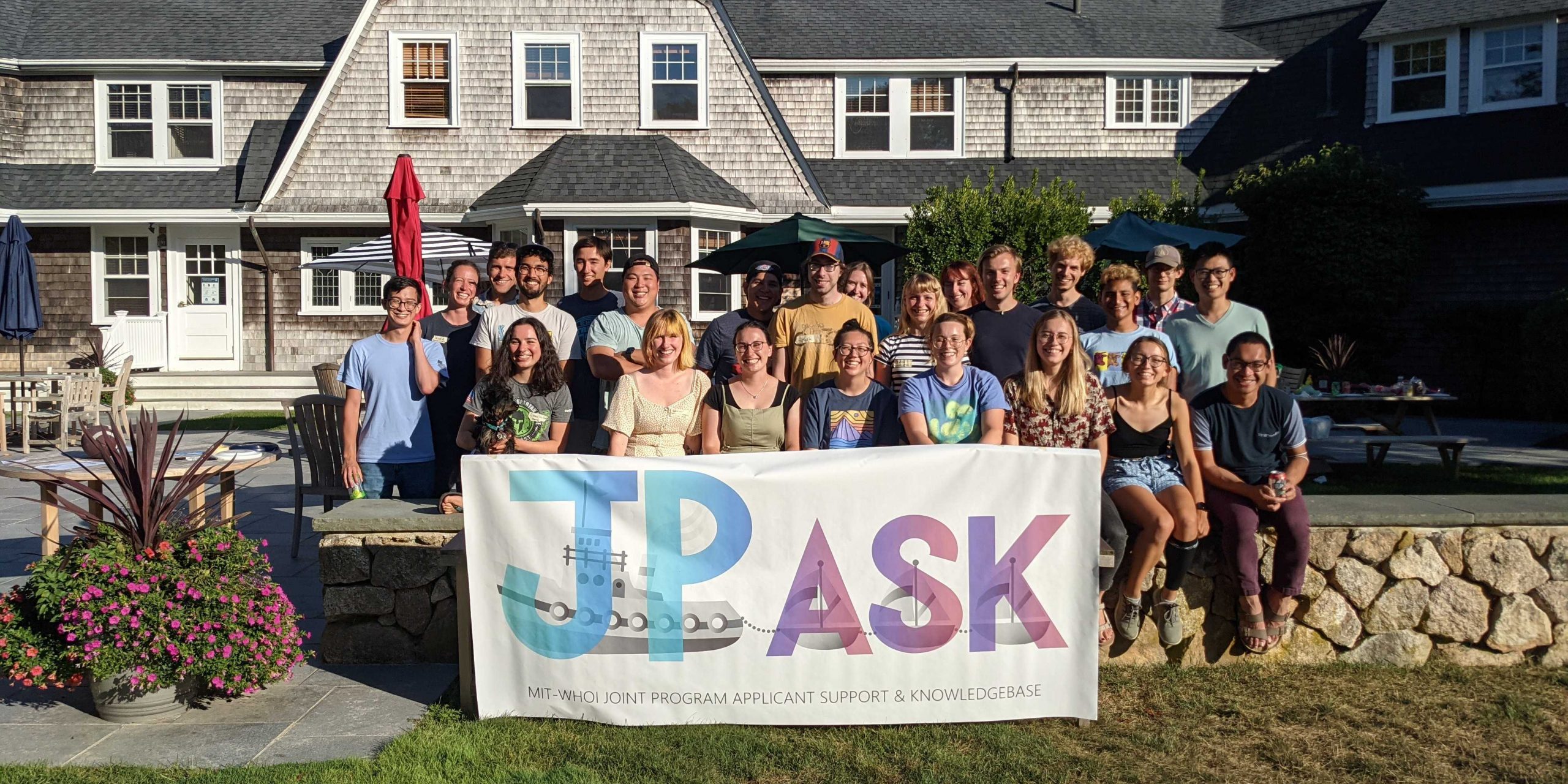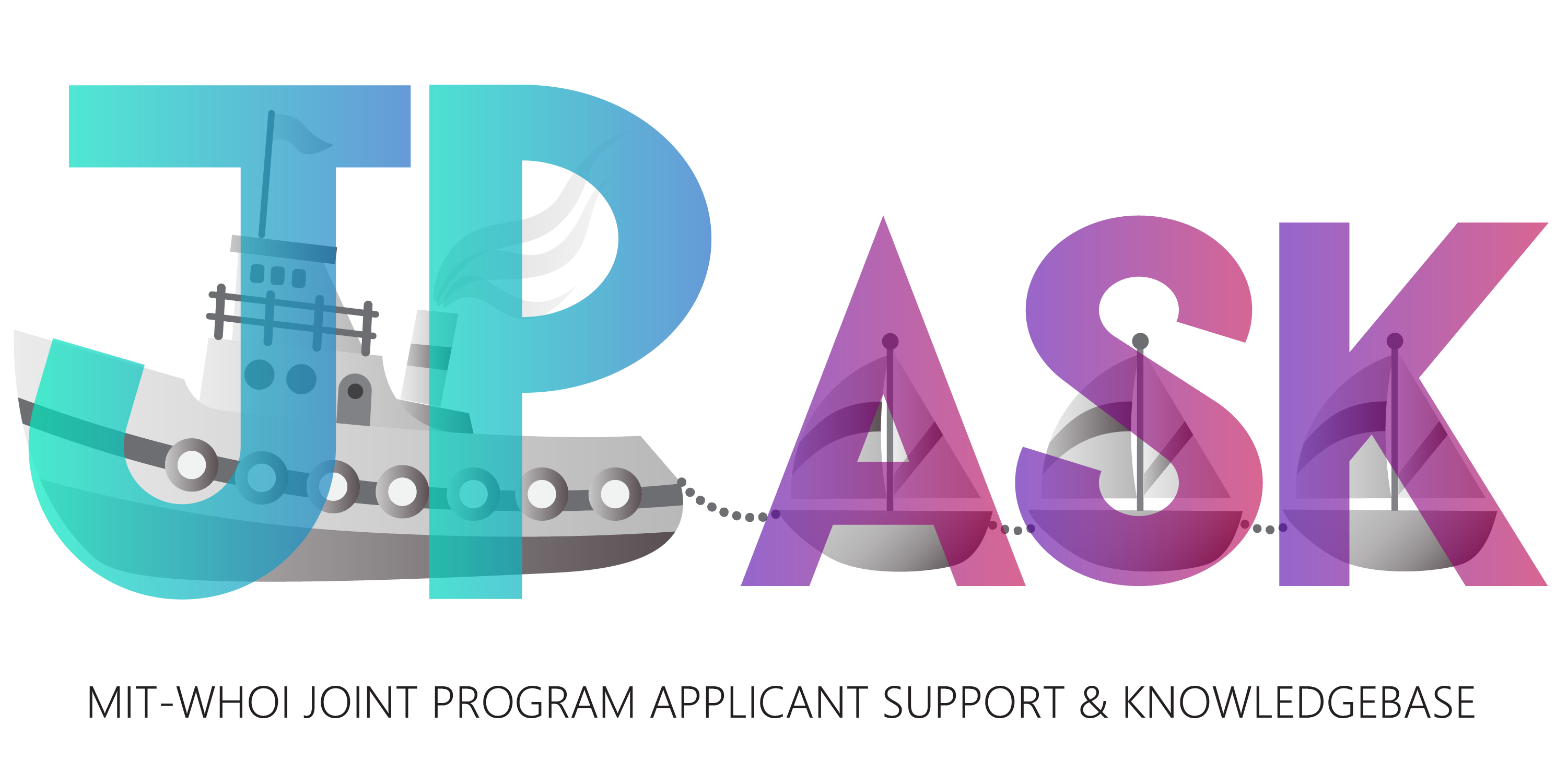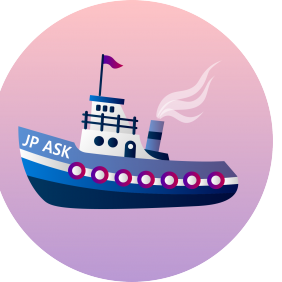

Applying to graduate school can be a difficult, confusing, and opaque undertaking. Students from non-traditional backgrounds or without personal connections to academia are often at a disadvantage as they navigate the unwritten rules of the graduate school admissions process. Graduate students in the MIT-WHOI Joint Program (JP) started the JP Applicant Support & Knowledgebase (JP ASK) program as a way to lower some of these barriers through one-on-one mentorship. Prospective applicants are paired with current graduate student mentors who can advise them on the application process and give them a window into what it’s like to be in graduate school. The program strives in particular to support those potential students who are underrepresented in ocean sciences, or who are unfamiliar with the field or with MIT and WHOI. Since its first season in 2019, JP ASK has helped hundreds of prospective students learn about graduate school and make informed decisions about their future.
When Eeshan Bhatt started as a JP student in 2015, diversity seemed to be a taboo word, occasionally whispered behind closed doors. It is a far cry from today when seemingly every educational and scientific institution has a dedicated page on its website detailing efforts to progress Diversity, Equity, and Inclusion (DEI).
After Eeshan passed his generals, he had some newfound breathing room outside of classes and research. He used this time to get involved in grassroots DEI efforts. During this time, he kept wondering why, out of a program of 150 students, there were only a handful of people of color. Motivated by this question, Eeshan and Paris Smalls, a fellow JP student, submitted an open letter asking, “Why are there so few people of color in this program?”. This letter questioned if there was a consistent bias against people of color in the admissions cycle and provided initial directions of inquiry.
This letter sparked back-and-forth communications with the then Dean of Students, Meg Tivey, and culminated with Meg sitting down with a small group of students to look at anonymized admissions data. They found that within the program, people of color and underrepresented minorities were admitted at higher rates than population rates, likely a result of the relatively small number of students in the program to begin with. Based on these statistics, the Academic Programs Office (APO) felt at the time that systemic bias against minorities was not a concern in the program. However, publicly available statistics about retention in a similar program, MIT Earth, Atmospheric, and Planetary Science (EAPS), indicate that underrepresented minorities (URMs) and female students leave the program without a degree at higher rates. This seems to be a pervasive problem at MIT, with attrition rates for URMs and female students higher than non-URM and male students across all departments at MIT. WHOI-specific statistics are not made public, likely due to the small numbers of students in the program relative to other graduate programs.

Following the 2018 open letter, a group of students held two JP-wide “listening sessions” in January 2019 to hear from as many people as possible and pose solutions to the problems in DEI at WHOI they felt were most important. Out of these sessions, it became clear that there were some common pathways students in the JP have taken to get to graduate school. The most visible pathways to a graduate degree in oceanography were baked with privilege, such as a personal connection to the ocean or Cape Cod, already having a family member in the field or academia, or even having some diving, sailing, and water experience growing up. Then there were those who accidentally discovered the geosciences and felt luck brought them here.
It seemed from these sessions that many students from underrepresented groups did not know they could have a career in geosciences, and the few minority students who did end up in geosciences had learned about the field through happy accidents. One study published in Nature shows that many students from underrepresented minorities do not consider a career in geosciences because they have not been informed of such careers and how they could positively impact that students’ community. JP students considered this to be an equity issue that should be addressed systematically. The idea of a mentorship program to help prospective students learn more about applying for graduate school in the geosciences emerged: JP ASK (Joint Program Applicant Support & Knowledgebase).
In 2019, following almost a year of back-and-forth communication with APO, the first board members got the go-ahead to start JP ASK. It was already a month into the admissions cycle, but the first board members, Eeshan, Justin Suca, Mara Freilich, and Shawn Wang, were able to get things up and running the day after they got the green light. Meg Tivey and Lea Fraser, then Graduate Admissions and Student Affairs Officer, put up the webpage immediately, which was extremely helpful in getting JP ASK up and running.
“The hardest part about this program was starting it,” said Eeshan. But once it was rolling, it was easy to manage: advertise JP ASK to prospective students, solicit volunteers from current JP graduate students, and match mentees with appropriate mentors. Once prospective applicants are put in contact with a current JP student, they can get their questions answered about the application process and gain a better understanding of graduate student life. It’s a win-win-win for the mentees, the graduate school, and the JP mentor who gets to personally help with DEI efforts in the geosciences.
JP ASK's mission is more than increasing the number of applicants in oceanography; it seeks to ensure that everyone is well-informed about their choices. The program does not view success as simply admitting more students but focuses on fostering an environment where students feel welcomed and know that their well-being and growth as a scientist (and person) is prioritized.
JP ASK was relatively early on the scene of graduate application programs. Since its creation, graduate students from many other schools have contacted JP ASK, wanting to start a similar program at their institution. The program has received so many such emails, in fact, that its leaders put together a folder on how to start a peer mentorship program at your institution that gets sent to inquiring graduate students.
While the program has had many successes, JP ASK leaders like Chemical Oceanography Ph.D. candidate Max Jahns see the program as a 'stopgap' solution in a system where admissions and recruitment/retention mechanisms in STEM and oceanography often fail underrepresented individuals. “The responsibility to solve these issues lies with the institutions, and institutional leadership should provide the necessary resources to make the field accessible to individuals from diverse backgrounds,” Max says. Although systemic change is not the responsibility of individual graduate students, we can still make a difference by connecting with someone from an underrepresented background who wants to know more about the ocean sciences or how to apply to graduate school.

Eeshan’s advice to graduate students who want to contribute to progress? “You can’t do it alone” – start small, build a coalition of passionate people, and then make sure your movement can continue growing without you when you leave. Eeshan says, “No person should be so instrumental in change that it cannot continue in their absence”. Another piece of advice? Get involved and do what you think is right, but not at the expense of yourself. Becoming a JP ASK mentor is a way to positively impact someone’s life in just a few hours, which is why so many JP students volunteer for the program year after year.
Read more of Through the Porthole Issue #10
Learn more about Through the Porthole
Learn more about the MIT-WHOI Joint Program